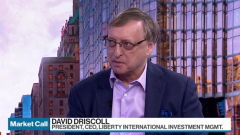Jul 1, 2024
Renault Vows to Lower EV Battery Costs 20% With Cheaper Process
, Bloomberg News
(Bloomberg) -- Renault SA pledged to reduce its battery costs by around 20%, in a bid to remain competitive by adopting a cheaper cell chemistry and new production processes for electric vehicle components.
Renault’s Ampere unit will integrate lithium iron phosphate, or LFP, cells in its EV platform alongside the nickel cobalt manganese process it uses now, the company said in a statement Monday. Ampere will also work with South Korea’s LG Energy Solution on battery systems to extend their range.
The new approach will lower Renault’s costs to supply batteries for its vehicles from the beginning of 2026, the company said. It’s part of a broader effort to improve profit margins by centralizing suppliers and other moves. Getting costs down will help the French carmaker keep pace with an industry shift toward cheaper car batteries that’s putting pressure on automakers that, like Renault, use costlier NCM chemistry.
Renault said it is also working with its partners to stand up a “value chain” of EV suppliers in Europe. China’s Contemporary Amperex Technology Co. will provide LFP cells from Hungary while LG will work from Poland on cell-to-pack technology, which uses a pouch-type system to squeeze more battery cells into a given space. Other Ampere partners have facilities in France.
European automakers are struggling to compete with cheap models from China, even as the European Union imposes new tariffs to slow their advance. Volkswagen AG in May decided to develop electric cars priced at €20,000 in Europe on its own, forgoing partnerships.
Renault earlier this year abandoned plans for an initial public offering of the Ampere unit after investor appetite cooled because of slowing EV demand and aggressive price cuts by Tesla Inc.
Renault Chief Executive Officer Luca de Meo has also pursued partners to share the cost of developing a platform for more affordable EVs. Renault and VW held early talks, but Europe’s biggest carmaker instead announced a plan last week to invest €5 billion ($5.4 billion) in a venture with EV manufacturer Rivian Automotive Inc.
Carmakers are also reworking some of their electric strategies to account for a slower-than-expected shift to EVs, which remain out of reach for many consumers. This ranges from VW’s deal with Rivian, granting access to advanced battery and software technology, to changing course on battery projects.
Automotive Cells Co., owned by Mercedes, Stellantis and TotalEnergies, last month paused two of their three projects, expected to cost €7 billion in total. The companies are weighing a pivot to making cheaper cells in light of slowing demand. VW has said it may push out the timing for reaching full capacity for its €20 billion battery plan in Europe.
--With assistance from Kimberley Mannion.
(Updates with more European automaker efforts on EVs)
©2024 Bloomberg L.P.


